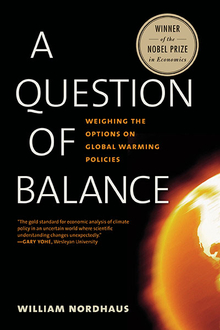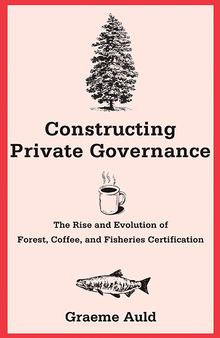Governing Through Markets
WARNING
You are viewing an older version of the Yalebooks website. Please visit out new website with more updated information and a better user experience: https://www.yalebooks.com
Forest Certification and the Emergence of Non-State Authority
Benjamin Cashore, Graeme Auld, and Deanna Newsom
In recent years a startling policy innovation has emerged within global and domestic environmental governance: certification systems that promote socially responsible business practices by turning to the market, rather than the state, for rule-making authority. This book documents five cases in which the Forest Stewardship Council, a forest certification program backed by leading environmental groups, has competed with industry and landowner-sponsored certification systems for legitimacy.
The authors compare the politics behind forest certification in five countries. They reflect on why there are differences regionally, discuss the impact the Forest Stewardship Council has had on other certification programs, and assess the ability of private forest certification to address global forest deterioration.
Visit the authors' web site.
"An excellent book that will make a significant contribution to an important emerging area of research."—Aseem Prakash, University of Washington
"Valuable and full of perceptive insights. Cashore and colleagues have made a real contribution to the debate."—Chris Elliott, World Wildlife Fund International
"A rich theoretical and empirical contribution to our understanding of private environmental governance in the forestry sector in several industrial countries. It will be of considerable interest to those involved in environmental management and governance."—David J. Vogel, University of California, Berkeley
"Under what conditions do markets effectively govern the environmental practices of firms? When, more narrowly, does certification promote more sustainable forest practices? Governing Through Markets is essential reading for all future analysis of these increasingly central questions in the literature on global environmental governance."—Peter Dauvergne, University of British Columbia
"A rich and detailed treatment of an important new topic in the study of international environmental politics: the emergence of private, or 'non-state' authority in global governance. . . . A must read for anyone interested in the emergence of non-state authority in the international system, or in the nuts and bolts of forest certification politics. The book is an exemplary model of interdisciplinary, collaborative research among authors of different professional and disciplinary backgrounds."—Kate O'Neil, Global Environmental Politics
"This offering . . . fills an important gap in the forest policy and global governance literatures. . . . Written in a lively, engaging and readable style, Governing Through Markets will be the core text on forest certification in North America and Western Europe for the next few years. . . . It speaks to a range of disciplines, and it will be indispensable reading for students of forestry, policy science, politics, international relations and global governance."—David Humphreys, Journal of Environmental Planning and Management
“Governing through Markets effectively combines theoretical discussion with extensive qualitative observation and makes for a very interesting read.” - Kyla Tienhaara, International Environmental Agreements
"This book highlights the growing importance of non-state actors, both NGOs and firms, in environmental governance. It makes an important contribution to our understanding of when non-state authority is likely to emerge and when it will be most effective."—Inger Weibust, Norman Paterson School of International Affairs, Carleton University
Publication Date: August 11, 2004
17 figures









